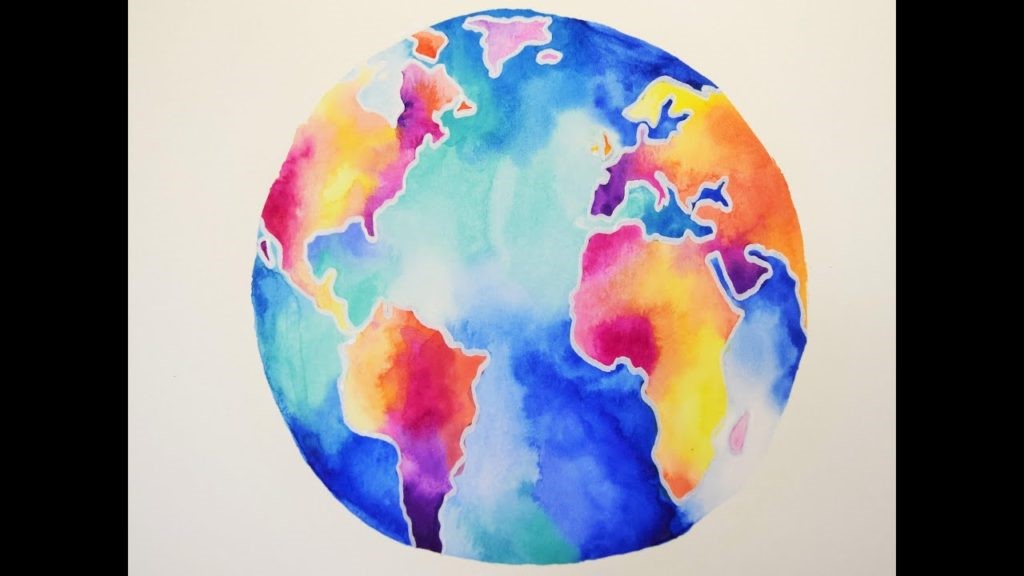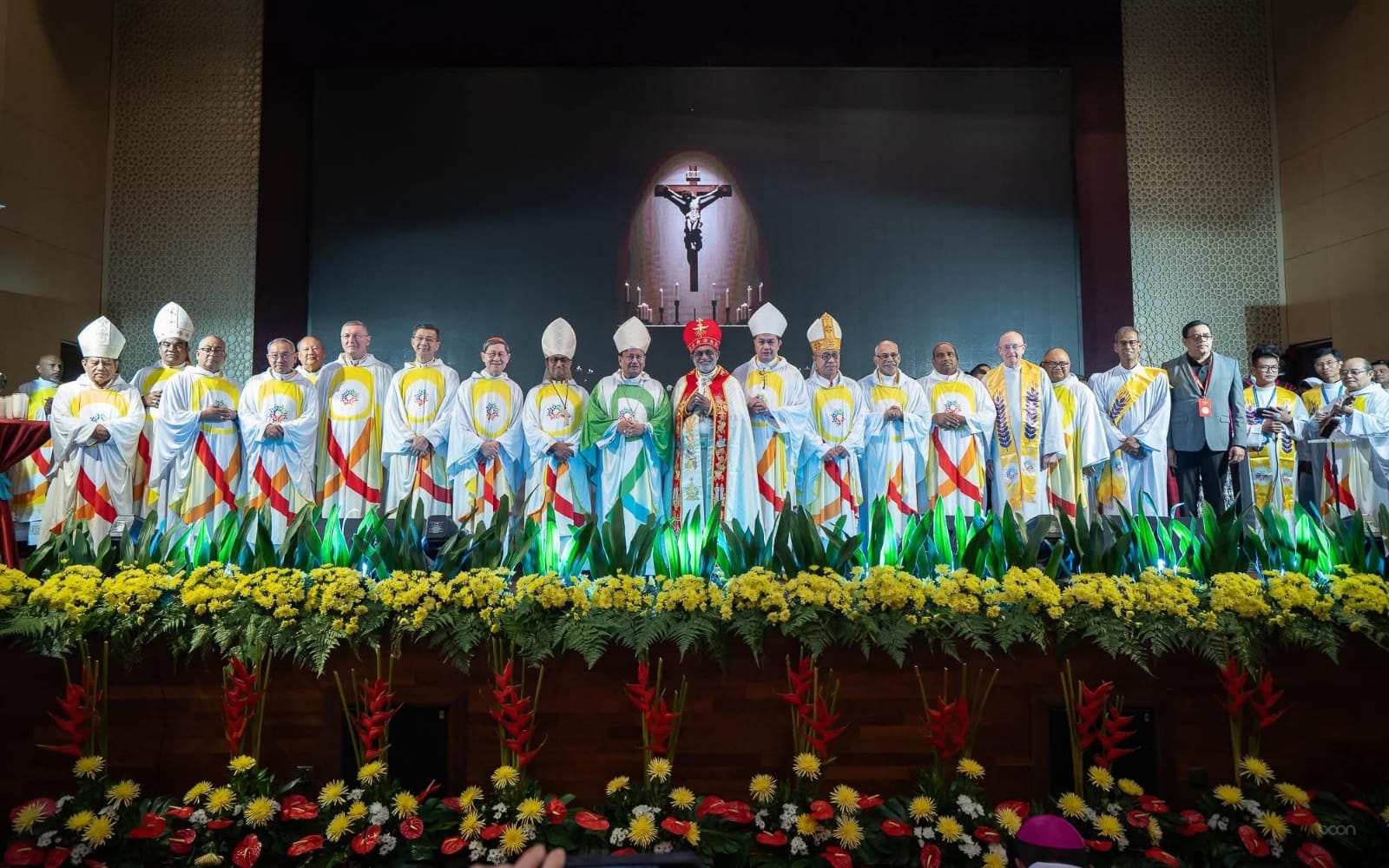– FAUSTO GOMEZ OP
Globalization! We are one family, and we all are citizens of a country and citizens of the world.
Some people praise globalization to the skies as a great blessing for our times. Others criticize it as a terrible curse. Still others, as none of the above and all of the above, that is at times it is good and at times, evil. Either way or in between, the fact is that globalization is here to stay.
GLOBALIZATION AND KINDS
All agree that the influence of globalization is everywhere. No country, no person can escape from this phenomenon that permeates modern life. Someone has said that the human person today “feels like one more terminal in the huge computer of globalization. If one is not connected to it to receive all kinds of information, he or she will be left out of the system and become one more person in the long row of the ‘new marginalized’” (Liliana A. Motozzo de Romualdi).
There are different kinds of globalization, including the following: economic, political, technological and cultural globalizations. Furthermore, there is ethical and spiritual globalization, or the globalization of solidarity and fraternity against social indifference and insensibility. Among the different kinds that are interconnected, economic globalization is the most prevalent. Economic globalization, like all other kinds, needs a permeating kind of globalization, that is, ethical globalization: the human person is an ethical human being by nature and ought to act ethically.
Our world is indeed a global village (as McLuhan predicted). It is a global village needing global ethics to be a good global village: a global ethics centered on universal ethical principles and human values. All faiths and religions, in particular, continue searching together for a new world ethic. We still think that the best was the one proposed by the Parliament of the World Religions (Chicago, August-September, 1993). The radical principle of global ethics is: No new global order without a new global ethic. Its fundamental demand: Every human being must be treated humanely. The four irrevocable directives are: Commitment to a culture of nonviolence and respect for life; of solidarity and a just economic order; of tolerance and a life of truthfulness, and of equal rights and partnership between men and women.
GLOBAL ETHICS
Global ethics respects diverse cultural ethics. It is committed to the proper integration of the various cultural ethics. The different ethics of cultures ought to be rooted in the equal dignity and fundamental human rights of all peoples. In this context, the distinction between difference and fragmentation is truly illuminating: while cultural differences respect universal human rights, fragmentation does not. In fragmentation, “a group, or a race, or a nation will end up demanding rights, but without taking the other groups into account. This annuls the notion of human rights” (José Antonio Marina). Globalization, however, must not be confused with homogenization. While ethical globalization respects diversity (genetic, ecological, cultural), homogenization does not. In fact, the latter destroys cultures.
Globalization is directed by the rich and powerful countries, or more accurately, by the great transnational and multinational corporations. There is a transnational capitalist class, which controls the world to its own benefit. Generally, globalization is socio-economic and socio-political, and it is mainly beneficial to the rich and powerful nations, and multinational businesses. In fact, as John Paul II has said, globalization is leaving many people on the side of the road. Moreover, political decisions that affect all peoples are made only “by a small, restricted group of nations.” It is not just, the Polish Pope proclaims, that certain groups want to impose their ideologies on others, in particular concerning “the defense of life and the safeguarding of the family.”
Globalization and localization “can and do co-exist” (J. Estanislao). Wise words: “Think globally, act locally.” Globalization is, by and large, the successful globalization of certain localisms. According to Jorge Alonso, we have globalized localisms (successful integration of globalization in richer countries), and localized globalisms (the imposition of globalism to local conditions in poorer countries).
Authentic globalization ought to be – and at times is – ethical globalization. Pope Francis says: “Global ethics is an important front on which to engage” regarding the “indiscriminate use of technical means” (Pope Francis, Address to PAV, February 25, 2019). The current technological and mechanical dominance of individual and social life may be a great obstacle – in some way, it is already so – to just, non-violent and fraternal life. Moreover, the growing influence of populist nationalisms is a real hindrance to universal solidarity, and therefore to globalization.
HUMAN DIGNITY, SOLIDARITY, FRATERNITY
Fundamental ethical principle: respect the dignity of every person. Someone has said that person, dignity and rights form a sequence (Elisa Elizondo). The human person is an individual, a rational being and a social and spiritual being. Human dignity speaks of the nobility and excellence of the human being: intelligence, freedom and love; equality and fraternity. Human dignity is essentially equal in all humans, and its best expression is the mutual and reciprocal respect of universal and inviolable human rights.
With the ethical principle of human dignity, therefore, we have the principle of human rights: the human person possesses human dignity, which implies the possession of fundamental human rights by the fact that he or she belongs to the human species. Human rights means, above all, the “essential human rights,” and not arbitrary, non-essential alleged rights” (Pope Francis, Letter to PAV, 2019). An essential point: Human rights and duties are co-relative: “To one man’s right corresponds a duty in all other persons, the duty namely of acknowledging and respecting the right in question” (Pope John XXIII).
The ethical principles of justice and solidarity guide us towards authentic globalization. Justice implies giving to each person his or her due, above all, his or her rights. Solidarity means to love all – members of the unique human family – in particular the most proximate and the neediest. Among the common values in all cultures, solidarity is the prime value and virtue and principle (John Paul II). This solidarity implies promotion of justice, truth, peace and life, and involves, in the concrete, sharing technology and prosperity, respecting human rights, preventing conflicts, and practicing dialogue, and cooperation.
In the Christian perspective, solidarity takes on the dimension of “total gratuity, forgiveness and reconciliation” (John Paul II). It is practiced in fraternity: all humans are brothers and sisters. Fraternity in Jesus calls for universal loving solidarity, principally for the needy and the poor, who are subjects of especial love. Also in the context of globalization, Jesus Christ keeps saying to us all: “What you do to the least of my brothers and sisters you do it to me” (Mt 25:31-46).
Therefore, human and Christian solidarity must be evaluated according to the main criterion of social ethics, of the Social Doctrine of the Church, namely, the preferential love for the poor, including the sick, the needy and marginalized. The continuing poverty of millions challenges all men and women of goodwill. Some people feel that globalization “has widened the gulf between poorer and richer nations” (Leo J. O’Donovan SJ). In a world where there could be enough for everybody, millions of people are still poor, have no access to healthcare, no access to water, electricity, and other basic needs – and no access to internet and technological developments.
Hopefully, globalization will be – in an ascending way – just to more peoples and in solidarity with the poor and marginalized. To our Christian faith, globalization – with its positive and negative points – is a sign of the times, a messenger of God’s word that has to be read and interpreted properly. As a sign of the times, it is a sign of hope towards a truly globalized world. May the phenomenon of globalization become more and more a globalization of solidarity and fraternity!


 Follow
Follow


